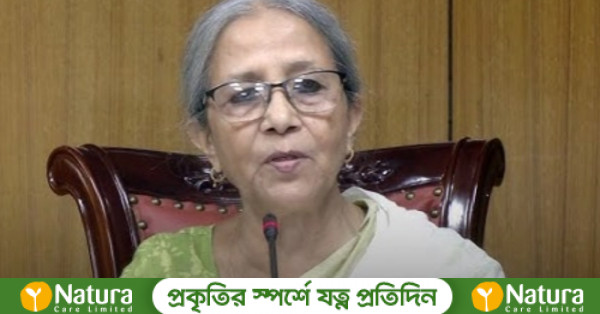‘No intention to import beef; want to lower prices’: Adviser Farida Akhter


Fisheries and Livestock Adviser Farida Akhter has dismissed any plans to import beef, emphasising efforts to lower meat prices by reducing local production costs.
In an exclusive interview with UNB, Adviser Farida Akhter addressed growing pressures from some groups advocating for the import of frozen beef from Brazil and other countries.
“We have no intention of importing meat. Importing meat from abroad takes time, and the nutritional value of beef can degrade if not processed correctly, posing health risks,” she explained.
Akhter pointed out that every year during Eid-ul-Adha, between 20 to 25 lakh cattle remain unsold in Bangladesh, and the country boasts a large number of livestock farmers.
“Using the excuse of price hikes to justify imports may initially seem beneficial, but it could eventually lead to foreign control over our meat market. We must think about the consequences on our society if we undermine the local livestock market. We are committed to ensuring that meat remains affordable and accessible while supporting our farmers,” she said.
The adviser also addressed the rising cost of animal feed, which has contributed to the increase in prices for meat, eggs, and milk.
“We need to break the syndicates that control these prices,” she asserted, adding that reducing feed costs is a priority. The government is also considering providing subsidies on electricity bills for the agriculture sector, similar to those provided for crop farming, to alleviate the financial burden on small farmers.
Akhter expressed concern over the declining production of native fish species, particularly those from rivers and open water bodies.
“We want to focus more on the production of indigenous fish species from haors, baors, and rivers,” she said.
She criticised the emphasis on farmed fish, stating, “I’m not impressed by the numbers showing we’re leading in farmed fish production. We had over 300 native fish species, and we want to bring them back.”
She also highlighted the declining contribution of river fish to the overall fish production due to reduced water flow and pollution from industrial waste.
“Inter-ministerial collaboration is essential to address these challenges, and we will work on a comprehensive plan to restore our aquatic resources,” Akhter added.
Addressing concerns about inadequate veterinary care, Akhter acknowledged that there have been complaints about the quality of treatment at veterinary hospitals. “We are taking strict measures to ensure that veterinarians fulfill their duties. Any negligence in treating livestock will be addressed promptly,” she vowed.
The adviser also spoke out against corruption within the livestock sector. “We are serious about combating irregularities and corruption. Officials must be held accountable to ensure public service delivery. No one will be allowed to engage in corruption during this government’s tenure,” she asserted.
No hilsa export to India during Durga Puja
Regarding the export of hilsa fish, Akhter confirmed that the government has imposed a ban to ensure sufficient supply for local consumers.
“We cannot allow hilsa to be exported while our own people cannot buy them. This year, I have instructed the Ministry of Commerce to prevent any hilsa exports to India during Durga Puja,” she said.
She emphasised that Bangladesh produces 70-80% of the world’s hilsa, making it a source of national pride but also a challenge.
“Protecting hilsa breeding grounds and sanctuaries is crucial. Without proper management, production will suffer,” Akhter warned.
She added that more stringent measures would be taken to prevent the illegal smuggling of hilsa, particularly across the border to India.
The adviser also highlighted the challenges faced by poultry farmers, particularly those related to the pricing of day-old chicks, which are controlled by a few large companies.
“We will prioritise protecting the interests of small and medium-sized poultry farmers. Many women are involved in this sector, and safeguarding their interests will contribute to women’s empowerment in our country,” she noted.
Flood impact on livestock
Addressing the impact of recent floods, Akhter revealed that the government has recommended suspending loan repayments for affected farmers for three months.
“I visited flood-stricken areas in Cumilla and spoke with farmers who have suffered significant losses. We are considering the construction of shelters for livestock during floods,” she said.
The floods have caused extensive damage, with losses in the fisheries sector estimated at Tk1,590 crore and Tk 411 crore in the livestock sector.
“We have announced several initiatives to help farmers recover, including the distribution of animal feed, vaccines, and grass cuttings. In the fisheries sector, we will assist affected farmers in Chattogram, Sylhet, and Khulna with rehabilitation efforts,” Akhter assured.
These initiatives include providing easy-term loans, infrastructure support for fish farms, and distributing fish fry to farmers to aid in their recovery.




